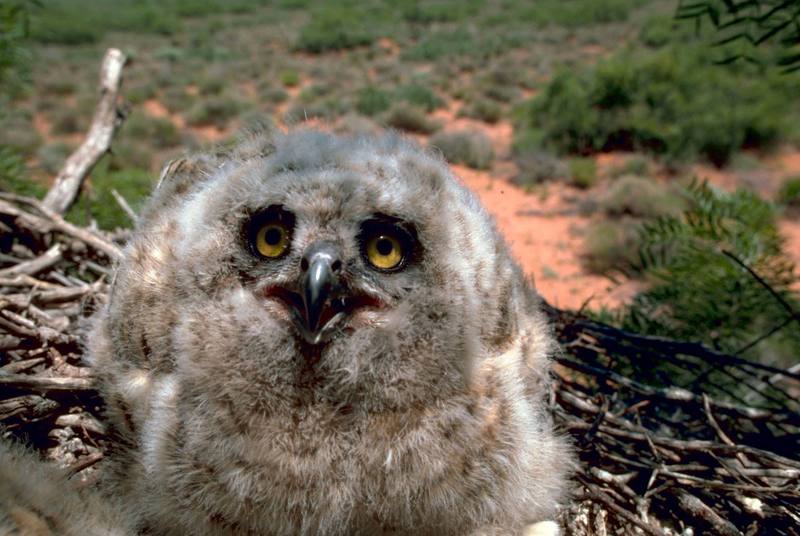|
| Query: Rat | Result: 765th of 779 | |
Great Horned Owlet (Bubo virginianus) <!--큰뿔부엉이/아메리카수리부엉이-->
| Subject: | Great Horned Owlet (Bubo virginianus)
| | Poster: | Phoby (phoby@hanafos.com)
| |

| Resolution: 2500x1674
File Size: 437926 Bytes
Date: 2004:12:14 17:32:05
Upload Date: 2004:12:14 17:21:49
|
From the U.S. Fish and Wildlife Service's online digital media library.
Check http://images.fws.gov/ for higher quality version.
Metadata
Title: Great Horned Owl (3 weeks)
Alternative Title: (none)
Creator: Stolz, Gary M.
Source: WO-8326-031
Publisher: U.S. Fish and Wildlife Service
Contributor: DIVISION OF PUBLIC AFFAIRS
Language: EN - ENGLISH
Rights: (public domain)
Audience: (general)
Subject: birds, New Mexico
Date Issued: December 05 2001
Comments
=========
The Great Horned Owl (Bubo virginianus) is a large owl native to the Americas. It is a powerful, mottled-brown predator that ranges from Arctic tree limits south to the Strait of Magellan. The Great Horned Owl is an extremely adaptable bird with a vast range and is the most widely distributed true owl in the Americas. It is often more than 60 cm long, with a wingspan often approaching 200 cm. Its primary diet is rabbits and hares, rats and mice, and voles, although it freely hunts any animal it can overtake, including rodents and other small mammals, larger mid-sized mammals, birds, reptiles, amphibians, and invertebrates.
Order: Strigiformes > Family: Strigidae > Genus: Bubo > Species: Bubo virginianus |
^o^
Animal Pictures Archive for smart phones
^o^
|
|

